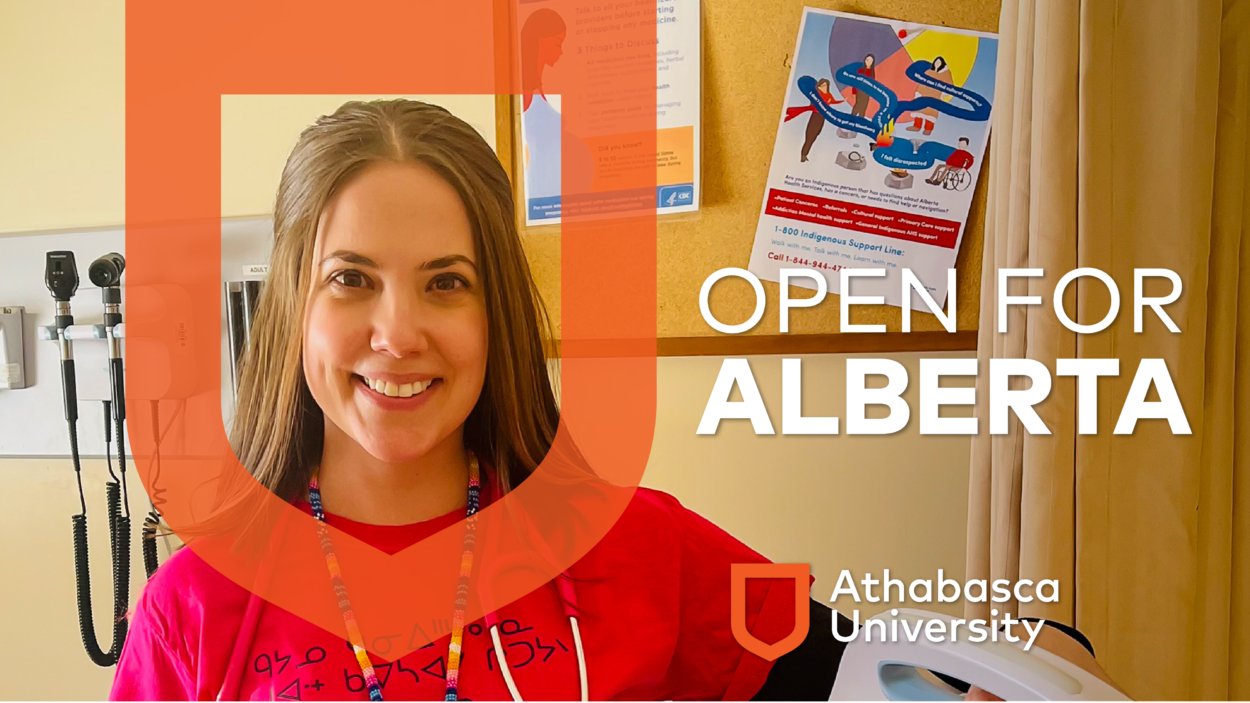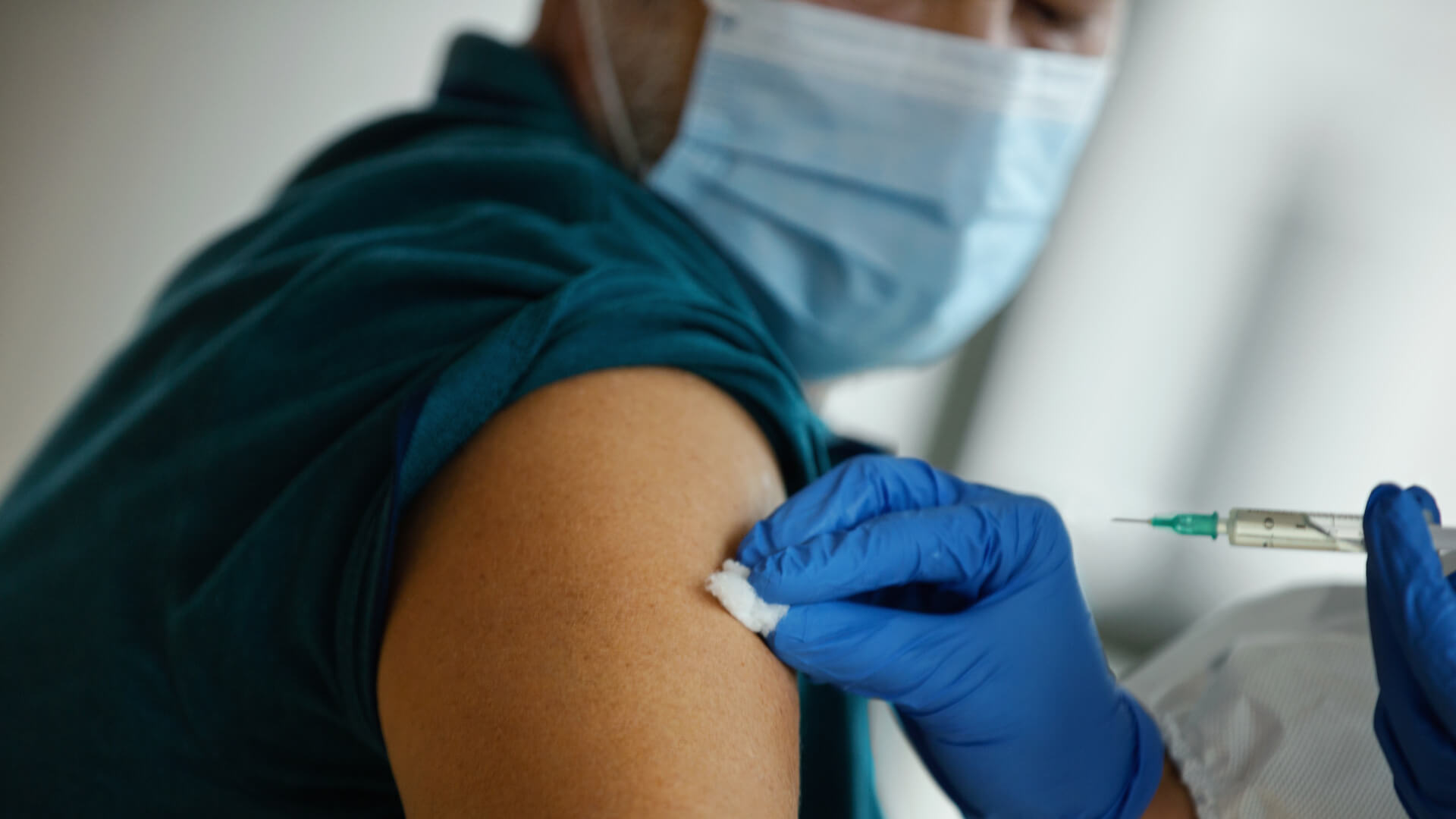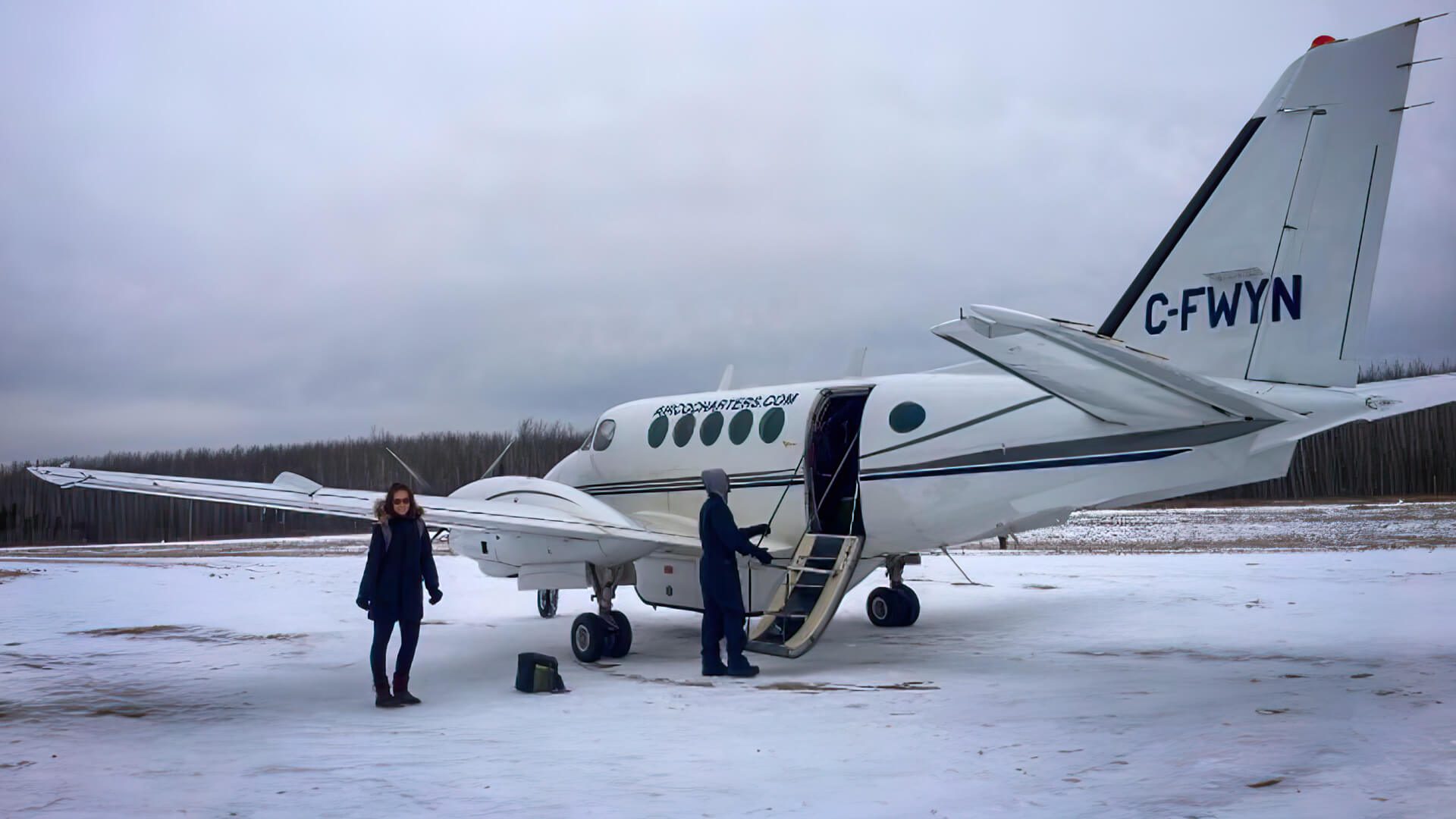Nurse practitioner treats health inequity in remote Indigenous community

Profession serves vital health-care role in northern Alberta community of Fox Lake
When Kayla Milley started studying to become a nurse practitioner at Athabasca University, she was a registered nurse living and working in Halifax, N.S.
By the time she finished the program a few years later, Milley was living on the opposite coast, in Victoria, B.C.
Now with a few years of practice under her belt, Milley (Master of Nursing – Nurse Practitioner ’19) works in a completely different part of the country—Fox Lake, Alta. The northern Alberta community is part of Little Red River Cree Nation, about 180 kilometres east of High Level. It’s so remote it can only be accessed by plane or ice road during winter, and a barge during summer.
Despite her cross-country travel and experiences, there’s nowhere else that Milley would rather work. Nurse practitioners play an important role in primary health care throughout Canada, but especially for remote, rural, and Indigenous communities where there’s a shortage of workers and health inequity is a major challenge.
“I absolutely fell in love with the community,” she explains.
Treating health inequity among remote Indigenous communities
Milley works for Indigenous Services Canada, which flies health professionals such as nurse practitioners and physicians to remote communities where they treat patients.
She first started practising in Fox Lake as a registered nurse because she always had an interest in working with Indigenous People. During one of her clinical rotations as a nursing undergrad, Milley was based in a First Nations community in Nova Scotia. While working in palliative care, she remembers treating an Indigenous patient who was surrounded by about 20 family members when they died. The experience was powerful, and left an impression about how communities regard family, health, and life.
Working in Fox Lake would allow her to learn more about Indigenous People and cultures. It would also give her plenty of primary care experience in a remote community where she could make a difference.
“I knew there was a strong need,” she says. “People in these remote areas typically don’t get great health care, and you see the effects of that with every patient you see.”

Nurse practitioners fill a gap in primary care
Nurse practitioners play an important role in health care—and are underused in Canada, according to research. The profession’s scope of practice is similar to family physicians, in that nurse practitioners work independently and can conduct health screenings, manage chronic conditions, refer patients to specialists, diagnose ailments, and even prescribe medication.
In Fox Lake, Milley works from the community nursing station where patients know they can drop in whenever they like.
For these patients, getting consistent care and me being able to take the extra time to do the teaching with the patients definitely makes a huge difference. Kayla Milley (Master of Nursing – Nurse Practitioner '19)
As a result, she can take the time to get to know her patients and understand their health histories and needs for managing complex and chronic diseases such as hypertension and diabetes.
“For these patients, getting consistent care and me being able to take the extra time to do the teaching with the patients definitely makes a huge difference for them.”
Flying in health-care workers a lifeline for remote communities
Though she works in Fox Lake, Milley continues to live in Victoria. That means she flies into the remote community every 5 weeks for 2-week stints.
The travel can be a grind, but community is what keeps Milley coming back. In fact, about 2 years ago, she wanted to challenge herself in a new way and took a job in Victoria in primary and urgent care. But something felt off.
“I just didn’t feel like I was making the same impact for patients in Victoria,” she explains.

Urgent need for rural health care
The need in the community grew in her absence. Although physicians also get flown into the reserve, they’re often seeing dozens of patients every day, Milley explains. So when there’s a shortage of nurse practitioners, it means patients often get treated by registered nurses and paramedics.
Six months ago, she decided to return to her role in Fox Lake, where she now spends about a third of her time. Between visits, she provides virtual care for issues such as mental health and sexual health.
Being able to make a difference for these people is what really makes me love being there.
Today, there’s almost always a nurse practitioner available to treat the people of Fox Lake, Milley says. They understand the community and, in turn, the community trusts that they’ll receive good health care.
And that’s how it should be.
“Being able to make a difference for these people is what really makes me love being there.”
Online learning critical to health care in Alberta
Read more stories about how AU and our students and alumni are working to solve health-care challenges in Alberta and beyond.